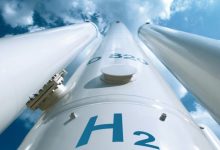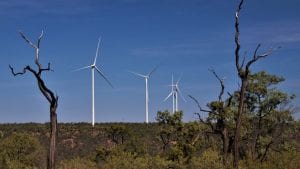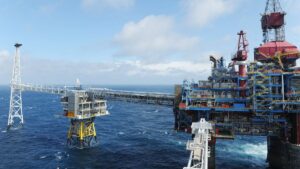The European Commission’s plan for major financial and policy support for a rapid and massive deployment of green hydrogen has been welcomed as a ground-breaking shift for the nascent technology.
The EC, as part of its RePowerEU strategy designed to reduce its dependence on Russian fossil fuels, has set a target of producing 10 million tonnes of green hydrogen a year within the EU by 2030, and to import a further 10 million tonnes.
It will support this through a “contract for difference” program – similar to the support mechanisms for wind and solar over the last decade – as well as broader policy and direct financial support.
Andrew Forrest, the Australian iron ore billionaire who wants his Fortescue Group to produce 15 million tonnes of green hydrogen by 2030, and is looking to meet some of that EU demand, says it has been advocating for such support mechanisms.
“The RePowerEU plan comes at a pivotal moment for Europe’s dual energy crises,” Forrest said in a statement, just a day after he announced he would resume a formal executive role as executive chairman.
“The EU needs to end its dependence on Russian fossil fuels. We also need to take lasting action to save our planet. Green energy, including green hydrogen, is the practical and implementable solution the world needs.
“We believe this target must be more ambitious, however this is good start.”
Forrest says the Russian war on Ukraine and the subsequent energy crisis it provoked has proven that dependence on fossil fuels is a poor energy strategy.
“That is not the only crisis on our hands. The climate crisis continues to wreak havoc on our planet, and immediate, lasting action is needed. The solution is here: Green hydrogen.”
The EC earlier this week unveiled a plan for a massive scaling-up and speeding-up of renewable energy in the EU, including a dedicated strategy to double the region’s installed solar capacity by 2025 and install 600GW of solar by 2030.
Its REPowerEU Plan estimates that the EU’s dependence on Russian fossil fuels, which are currently being used as an economic and political weapon, costs taxpayers nearly €100 billion per year.
“A massive scaling-up and speeding-up of renewable energy in power generation, industry, buildings and transport will accelerate our independence, give a boost to the green transition, and reduce prices over time.”
It also includes measures such as lowering speed limits on highways, room temperatures in buildings, and more energy efficiency measures.







